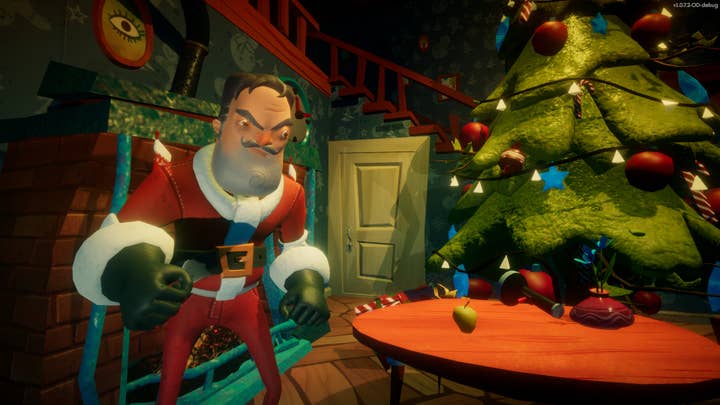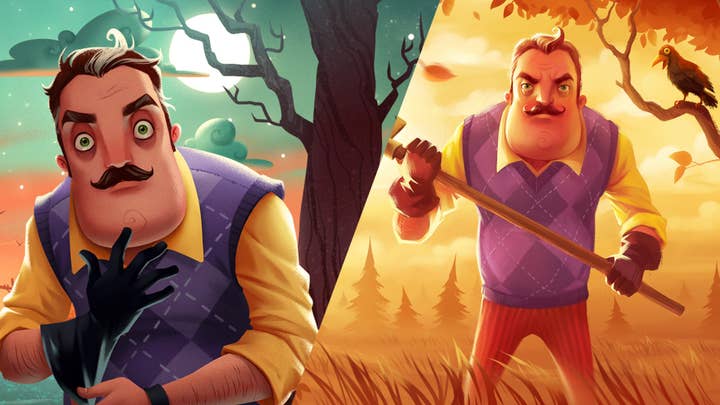Tinybuild: Indie publishers must move beyond "transactional relationships"
At the GI Investment Summit Online, Alex Nichiporchik described building the success of Hello Neighbor by thinking beyond a single launch
Indie games are stronger than they have ever been, according to Tinybuild CEO Alex Nichiporchik, but the publishers that take them to market need to move beyond "transactional" relationships with developers or risk being left behind.
Nichiporchik gave a presentation at the GamesIndustry.biz Investment Summit Online last week, in part to provide context for comments he made last month.
"The 'indie publishing' business is dead," he said in a statement, released alongside news of a Hello Neighbor television pilot attracting 11 million views. "It's a game of brands now."
Speaking to the Investment Summit audience, Nichiporchik clarified that he was not referring to indie game development specifically, which he believes is in its "best years right now." His observation was about the model of indie publishing that existed when Tinybuild first started in 2011, and remains the standard today.
"Anyone with a little bit of money or resources can become a publisher... and when there are a lot of players involved, when there are a lot of publishers popping up, the market gets over-saturated," he said. "The good part of that is a lot of competition forces everyone to evolve, and that's what we're talking about."
"A lot of competition forces everyone to evolve, and that's what we're talking about"
The key shift, he said, was away from "transactional relationships" between indie developers and publishers, where the two parties work together for a single game and often move on. The more crowded the marketplace becomes, the less commercial sense this approach makes for both parties.
"The problem lies in having a hit game that doesn't result in something bigger," Nichiporchik continued. "In an oversaturated market, you have too many products and not enough eyes on every product, so the value of a hit game is very high. That value starts to diminish as soon as you stop making products within that IP, within that brand."
In the transactional relationships that have typified the indie publishing space, not enough attention is paid to building on the commercial potential of an IP over time. That requires longer term relationships between publishers and developers, Nichiporchik argued, where the launch of a game is viewed as the start of the partnership rather than its conclusion.
"Building long-term relationships with developers has been paramount to us," he added. "And within those partnerships we want to create IP that is successful, and help to build the infrastructure and the expertise to make that IP into brands and franchises that will live for years to come."

This shift in thinking at Tinybuild was solidified by Hello Neighbor, the viral success of which -- it has been installed 30 million times across various platforms -- prompted the publisher to add features that it would now include from the start. Nichiporchik offered the example of the titular neighbour, who was initially the only properly defined character. Tinybuild and Dynamic Pixels consciously expanded the cast and emphasised the new characters in key art, providing more entry points for potential fans.
"This opens up so many opportunities for merchandising, for branding, for cross-media, for tv shows"
"This opens up so many opportunities for merchandising, for branding, for cross-media, for tv shows," he said. "I think a partnership with developers is really important here, to prep them during production with some production experience [for] what kind of things to expect and foresee before you launch the game.
"The same strategy applies to all new games that we're working on... Those games require much more support and dev time after they launch than during development. That's something not many studios realise."
In many ways, Hello Neighbour's launch marked the start of the process. The surprising levels of success it achieved prompted Tinybuild to commission two new projects almost immediately: a prequel, which launched a year later, and a multiplayer spin-off, which was released the year after that. There is also the aforementioned tv series, and a line of books that have earned more than $16 million in revenue.
Doing this requires a relationship with a developer that is intended to last for years from the earliest stages. Capitalising on the success of Hello Neighbor required the help of other studios and media companies, and Dynamic Pixels' consent to allow those people to make a contribution to its IP. When you have a hit, Nichiporchik said, you can't necessarily wait three years for a sequel.
"Why don't you go ahead and figure out a way to partner up with another studio, that either pushes the timeline forward on the sequel, or allows them to take a stab at a different take -- a spin-off within the brand? Then you're building a universe -- something bigger than the sum of its parts."
You can see Nichiporchik's full presentation in the video below, and the rest of the Investment Summit talks on the GamesIndustry.biz YouTube channel.


